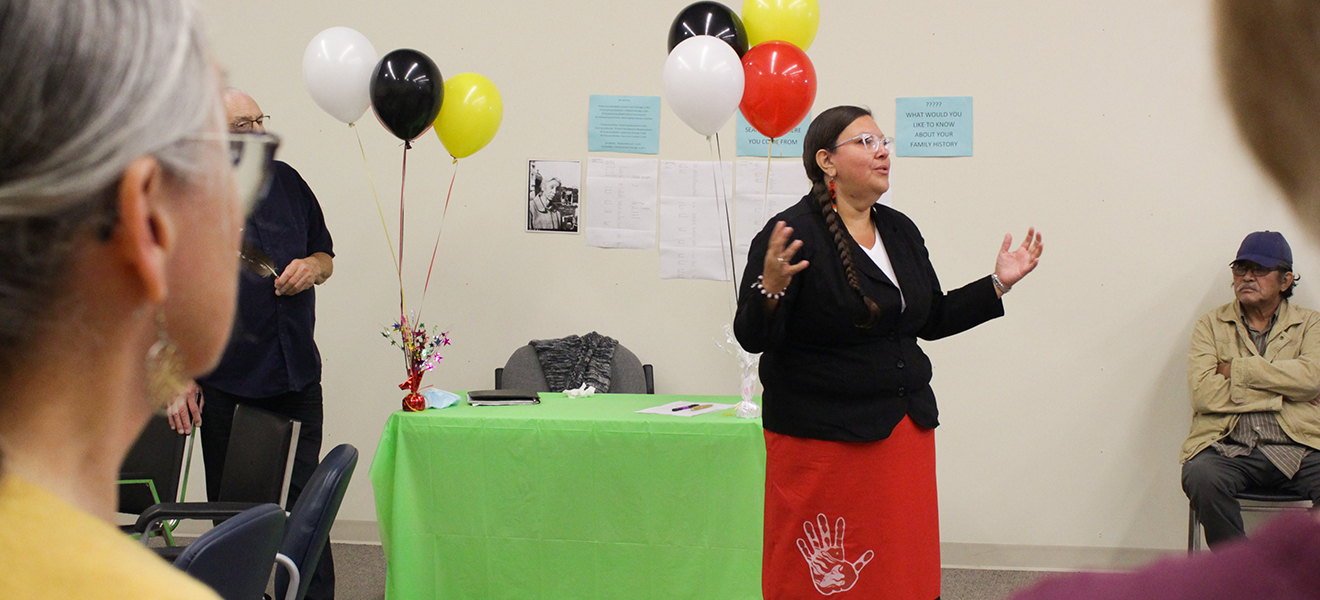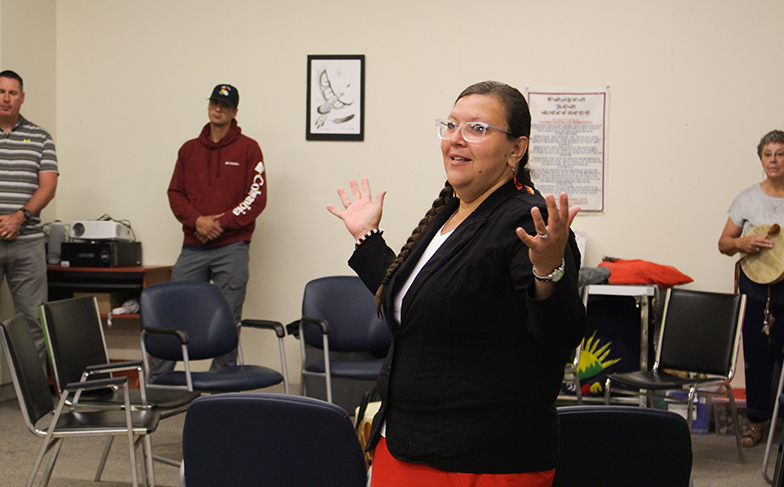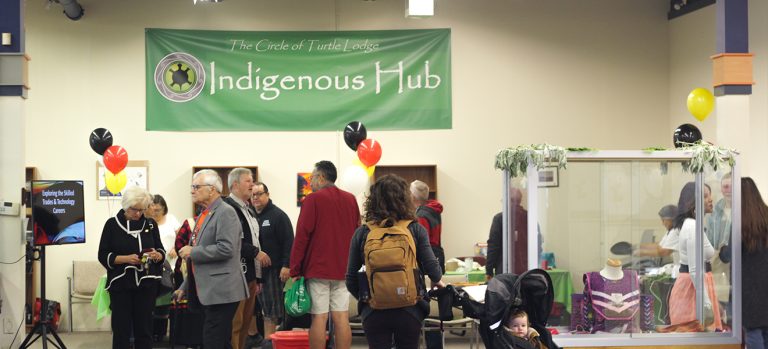The Mashkiwizii Manido Project is the only program of its kind in Renfrew County that provides a holistic approach to care. It’s offered in partnership with the Circle of Turtle Lodge with Joanne Haskin serving as the program’s director and lead therapist.
She provides culturally specific individual and group counselling support, which leverages Indigenous beliefs and healing techniques—combined with current clinical models—focusing on culture, language and land.
There are a variety of reasons why it is necessary for Indigenous people to have access to Indigenous-based and Indigenous-led health services. The primary draw, says Joanne, is the sense of mutual understanding and safety her clients report when accessing supports exclusive to those who identify as Indigenous.
“The very things that were taken from the Indigenous population were the very things they wanted to reconnect with the most,” says Joanne. “That just solidified what my vision has always been: providing support for mental health, addictions, and trauma through connections to culture.”
The program was tailored for Renfrew County’s urban-Indigenous population using responses to a research project supported by United Way East Ontario and conducted by the Robbie Dean Family Counselling Centre and The Circle of Turtle Lodge.
In her work with the Robbie Dean Family Counselling Centre, Joanne noticed a gap where there could be culturally sensitive counselling for urban-Indigenous clients. The data from the research further proved the theory and found that 97 per cent of the 144 urban-Indigenous participants reported a serious lack of culturally sensitive, Indigenous–based supports or services in Renfrew County.
“Over 50 per cent of that population was not seeking services because there were little to no Indigenous providers, they were feeling the effects of systemic racism and there was no cultural safe space provided,” says Joanne.

The impact of culturally sensitive services
In 2021—its first year of operation—the Mashkiwizii Manido Project was able to support 202 urban-Indigenous people in Renfrew County through individual and group therapy. Joanne is thankful for the initial support from United Way, which opened the door for the program to flourish.
“I want to say a huge Chi-Miigwetch, which means a big thank you, to United Way for being the first organization there for us in this project. For giving that funding that allowed us to assess what the needs were and piloting this project for us. Without that, this wouldn’t be possible,” says Joanne.
Approximately 70 local clients see Joanne on a regular basis for individual counselling. She says it’s been especially rewarding to see clients who have been through the program and are coming back to volunteer and support new members.
In March 2022, Joanne and her team were finally able to host an in-person day on the land after a long year of virtual meetings. It was a significant moment for clients to connect with one another, the land, and it marked new beginnings for the program.
“On that day on the land everybody got together. They were able to snowshoe together, drum together, sing together, feast together, learn culture together. That connection was so strong it felt like—this has got to get bigger” she says.

Supporting equitable, accessible and inclusive mental health
Culturally sensitive supports include awareness of the lived experiences, inequities, and unique pressures that equity-seeking groups navigate on a regular basis.
Based on their unique history with Canada and the ongoing, intergenerational impacts of colonization and its resulting trauma, Indigenous people require culturally specific services that are different from other equity-seeking groups.
Through timely and sensitive care and by creating a safe space to foster community, The Mashkiwizii Manido Project has made a significant impact in just one year, and its reach only continues to grow.
Now, it’s your chance to show your support!
Racialized and marginalized communities deserve accessible and inclusive care. By supporting United Way through the GCWCC, you can ensure culturally sensitive mental health programming and services are in place over the long term, for the betterment of diverse communities’ wellbeing.


